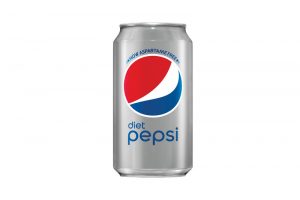
Most people don’t feel satisfied after eating a sugar-free snack or meal. Do you?
Many scientific studies have proven why you don’t feel full.
I included many of these studies in my book Sweet Poison.
Science Shows Diet Sweeteners Increase Hunger
Aspartame was shown in laboratory studies to create changes in insulin levels, and this is called a “cephalic phase insulin response.”
A cephalic phase response is a digestive reaction triggered in the brain by the taste, smell, sight or thought of any food. Your whole digestive system, from your mouth to your colon, can be affected by these messages.
Changes in cephalic phase responses such as salivation, gastric acid production and liver metabolism, for example, can alter normal appetite.
Michael G. Tordoff, Department of Neurobiology, Physiology and Behavior, University of California at Davis, published findings where aspartame in chewing gum increased hunger due to the oral stimulation of the added chemicals.
His study also showed a gender-related sweetness response, which explains why certain people feel “ravenous” after consuming aspartame-containing products, while others do not.
Craving Carbs

Studies have proven that:
- sugar-free chemicals, like aspartame, penetrate the brain;
- this penetration suppresses serotonin;
- then you crave carbohydrates.
A sweet taste triggers your brain to expect calories and carbohydrates (like incoming sugar). When you fake out your body, and nutrients aren’t delivered, your body activates a “hunger response,” which creates a constant need for food.
Besides affecting insulin, serotonin and your body’s hunger response, chemical sweeteners also increase cravings in yet another way by altering your blood sugar. This can be especially dangerous to people with diabetes or epilepsy, and can cause fluid retention, giving the body a puffy and bloated appearance. And it increases cellulite!
Another study by Tordoff and Friedman showed that test animals get the urge to eat more food after ingesting artificial sweeteners, lasting up to 90 minutes.
They showed when blood levels for insulin production are normal (high levels of insulin are believed to be a cause of hunger), the animals consumed more food than the ones who did not eat artificial sweeteners.
The result: fat rats.

The Urge To Overeat
In human aspartame studies, scientists have duplicated this urge to overeat. Researchers Blundel and Hill documented that “most artificial sweeteners enhance appetite and increase short-term food intake.”
They reported: “After ingestion of aspartame, the volunteers were left with a residual hunger compared to what they reported after eating glucose (sugar). This lingering hunger leads to increased food consumption.”
The result: fat humans.
To me, this proves that the brain retains the urge to eat when the taste buds are stimulated without “real” nutrients having actually entered your body!
Because aspartame is a neuro-excitotoxin (a chemical that over-stimulates brain cells), the brain gets “wound up”, and this triggers a false appetite/hunger. This may or may not change the taste of your food, but you become over-stimulated and tend to eat more at each meal and binge-snack because you are hungry all the time.
Those extra calories you save with that diet cola won’t make much difference if you binge on chocolate chip cookies because you’re hungry. If constantly using diet sweeteners is actually increasing your appetite, why use them?
Common sense tells me that proper diet and exercise are most beneficial way to lose body fat and maintain your weight. Even if you believe that artificial sweeteners help your diet, is it worth risking your health?
Sandra Cabot, M.D., states this about weight gain using aspartame:
“I have been a medical doctor for 23 years and have clinical and research interests in the liver and metabolism. I have been consulted by thousands of patients with weight problems, hormonal imbalances, fatty liver, sluggish metabolism and chronic ill health. In the interests of public health, I am making a position statement concerning the use of the artificial sweetener aspartame sold most commonly under the names of NutraSweet® and Equal®.
“One must ask, ‘Why do millions of people ingest a toxic chemical like aspartame everyday?’ To me it appears ridiculous and I believe that it is because people have been brainwashed into thinking aspartame will keep their weight down and is good for health. It also shows me that we have lost touch with our own natural senses and instincts.
“After having been consulted by thousands of overweight people suffering with problems concerning the liver and/or metabolism, I can assure you that aspartame will not help you in any way, indeed it will help you to gain unwanted weight. This has been my experience, and there are logical reasons to explain the fattening and bloating effects of aspartame.”
According to Dr. Cabot, when you ingest aspartame, your liver cells have less energy for fat burning and metabolism, which results in fat storing.

Excess fat builds up inside the liver causing “fatty liver” and making it extremely difficult to lose weight.
So, the next time you think you want a “sugar-free snack,” drink a glass of water instead of a diet cola and see if your hunger goes away!
________________
If you want to learn more about healthy eating, contact me at janethull.com. Remember that you are never alone when you are looking for good health!
Gain access to all of my online programs, ongoing support, monthly Q&A, and more by joining my Private Inner Circle Membership Program. I look forward to supporting you on your journey to alternative health and wellness.
_____________
Disclaimer: This article is for informational purposes only, and is educational in nature. The FDA may not have evaluated some of the statements. This article is not intended to diagnose, treat, cure, or prevent any disease. Please discuss with your own, qualified health care provider before adding supplements or making any changes to your dietary program.
Before taking vitamins, consult your doctor; pre-existing medical conditions or medications you are taking can affect how your body responds to multivitamins.
You have our permission to reprint this article if you attribute us with a live back-link to this article and the youtube links. https://janethull.com/